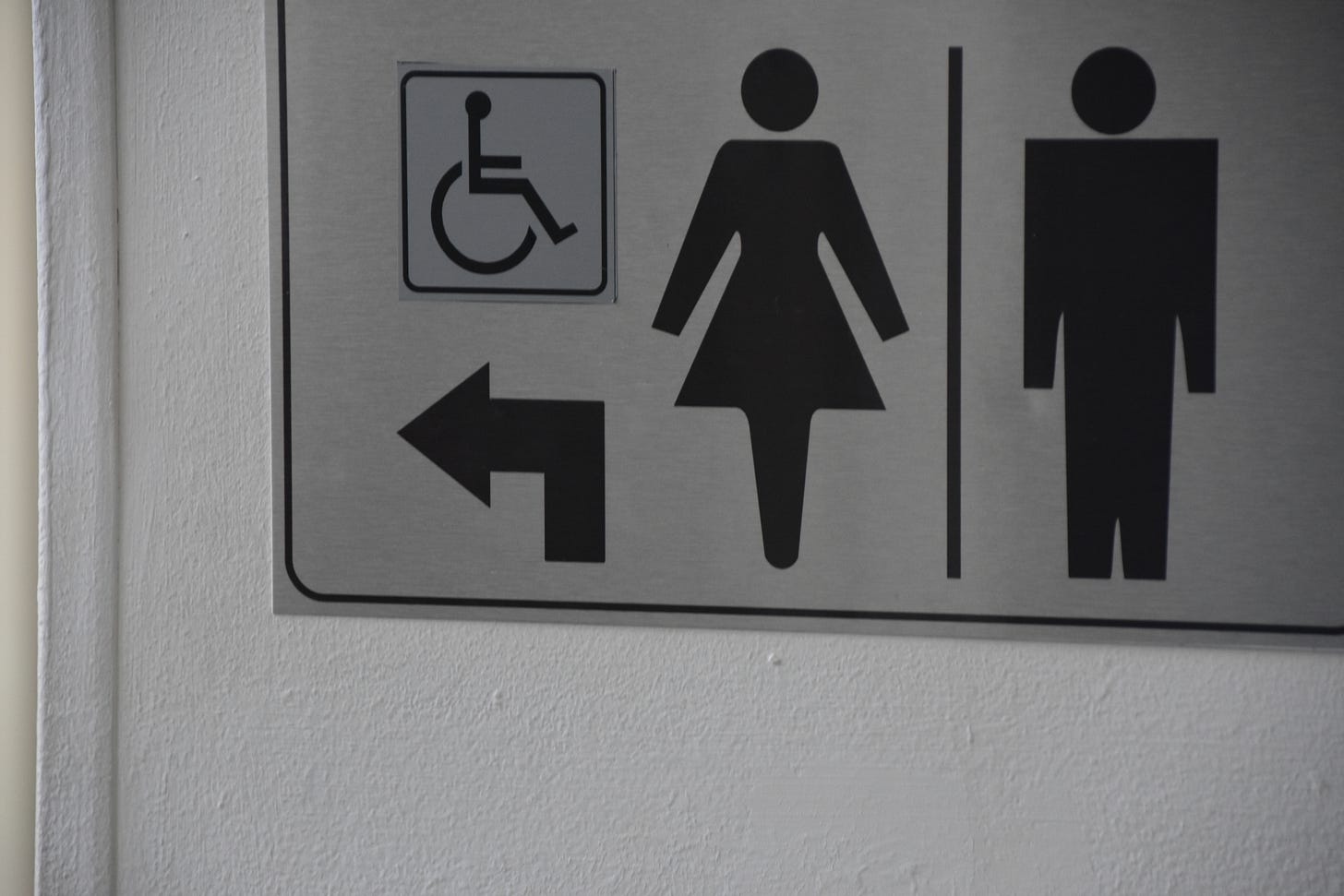Texas Becomes 20th State to Enact Transgender Bathroom Restrictions with Severe Financial Penalties
Governor Greg Abbott signed Senate Bill 8 into law on Monday, September 22, 2025, making Texas the 20th state to restrict transgender people from using public restrooms that align with their gender identity, establishing the nation’s most punitive enforcement system with fines reaching $25,000 for first violations and $125,000 for repeat offenses.
The comprehensive legislation, branded as the “Texas Women’s Privacy Act,” takes effect December 4, 2025, and applies to all government-owned facilities, including public schools, state universities, prisons, jails, and government buildings, requiring individuals to use restrooms based on their sex assigned at birth.
Eight-Year Legislative Campaign Reaches Fruition
The signing culminates an eight-year political battle that began in 2017 when Texas first considered bathroom restrictions targeting transgender residents. Since the initial attempt, the Texas Senate has passed six different versions of bathroom bills that failed to advance through the House of Representatives until this year’s special legislative session.
“This is just common sense,” Abbott declared in a social media video while signing the measure. The governor characterized the legislation as necessary to “keep men out of women’s restrooms”. Representative Angelia Orr, the bill’s House sponsor, emphasized that the law
“ensures people can use restrooms, changing facilities, and other shared spaces in confidence that they will not encounter a person of the opposite sex,” according to KUT.
The Texas House approved the measure 86-45 on August 28, following hours of contentious debate that was repeatedly interrupted by gallery disruptions, forcing Department of Public Safety officers to clear the visitors’ section. Representative Steve Toth’s last-minute amendment dramatically increased penalties from the original $5,000 to $25,000 for initial violations and from $25,000 to $125,000 for subsequent offenses.
Comprehensive Restrictions and Limited Exceptions
Senate Bill 8 establishes sweeping restrictions covering restrooms, locker rooms, shower facilities, and changing rooms in all government-controlled buildings. The legislation mandates that transgender inmates be housed according to their sex assigned at birth and prohibits family violence shelters from serving transgender women unless they are under 17 and accompanying a woman receiving services.
The law includes narrow exceptions for custodial staff, law enforcement officers, medical personnel, and children under 10 years old who their caregivers accompany. Single-occupancy, gender-neutral facilities remain permissible alternatives under the statute.
Enforcement operates through a citizen complaint system administered by the Texas Attorney General’s office, empowering private individuals to file reports alleging violations. “The preference of someone’s sexual appearance does not override the safety and privacy of a biological female,” Orr argued during House debate, according to The Texas Tribune.
Civil Rights Organizations Mount Strong Opposition
LGBTQ+ advocacy groups have mobilized fierce resistance to the legislation, characterizing it as discriminatory targeting of a vulnerable population. Emmett Schelling, executive director of the Transgender Education Network of Texas, expressed devastation while vowing continued advocacy.
“Make no mistake, trans people have always and will always survive,” Schelling stated to 19th News. “They can try as hard as they want, nobody will ever shatter the trans community or take away our deep and innate understanding of who we genuinely are”.
Brad Pritchett, interim CEO of Equality Texas, condemned lawmakers for failing constituents, declaring that “this bill continues a crusade designed to exclude transgender Texans from participation in public life—but ultimately it will fail,” according to the organization’s press release. The statement emphasized that “transgender Texans have always been here and always will be”.
Law Enforcement and Business Concerns Emerge
Travis County Constable Stacy Suits testified against the bill, noting that in nine years stationed outside courthouse restrooms, he had never encountered transgender-related problems. “We don’t want to be the potty police,” Suits told legislators, questioning practical identification methods.
The American Civil Liberties Union of Texas warned that the legislation encourages “gender policing” targeting anyone who doesn’t conform to traditional gender presentations. “This law puts anyone at risk who doesn’t seem masculine or feminine enough to a random stranger, including the cisgender girls and women this bill purports to protect,” stated Ash Hall, ACLU policy and advocacy strategist.
Business organizations have historically opposed bathroom bills due to economic consequences. The Texas Association of Business previously estimated such legislation could cost the state up to $8.5 billion. The National Gay & Lesbian Chamber of Commerce joined local LGBT chambers in denouncing the restrictions as “broadly discriminatory” and economically destructive.
Historical Context and Federal Conflicts
Raquel Willis, founder of the Gender Liberation Movement, drew historical parallels during legislative testimony, comparing bathroom restrictions to segregationist policies that denied her Black ancestors access to public accommodations.
“I think of my mother’s story of not being served in a restaurant because of her blackness. I imagine the White woman who denied her service would have blocked her from the restroom at that time, too,” Willis testified.
Prison housing provisions may conflict with federal Prison Rape Elimination Act regulations requiring case-by-case placement decisions for transgender detainees. This potential federal-state conflict could trigger legal challenges once the law takes effect in December.



